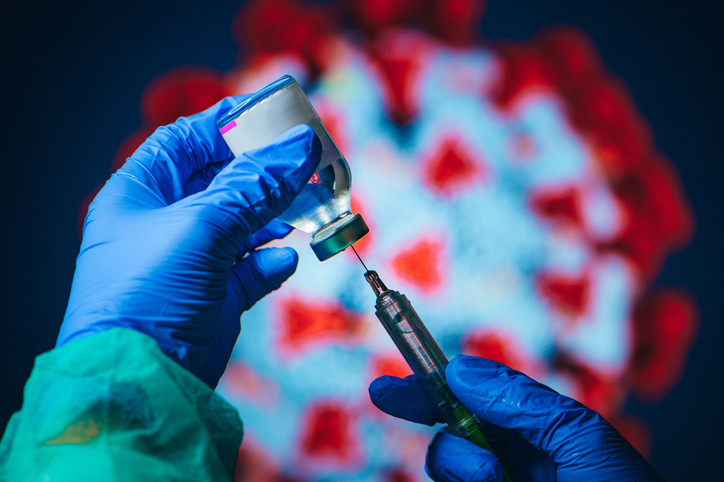Vitamin D supplements fail to reduce risk of COVID-19
5 December 2022
Large-scale clinical trial shows that a test-and-treat approach to correcting vitamin D deficiency did not reduce risk of COVID-19 or other acute respiratory infections.
Overview
The pandemic triggered an urgent search for effective ways to reduce risk and severity of COVID-19. Long-term research into vitamin D suggested antiviral properties that could be valuable. There was also the possibility that it might have anti-inflammatory properties which could reduce the severity of COVID-19. This provided a compelling case for a large-scale clinical trial testing whether providing adults with vitamin D supplies might help combat COVID-19 or reduce the risk of contracting acute respiratory tract infections of other causes.
The challenge
Laboratory studies have shown that vitamin D can boost immunity to respiratory viruses and dampen harmful inflammation, and analysis of pooled data from clinical trials from the pre-COVID era showed protective effects against respiratory infections other than COVID-19.
However, there was an absence of Phase 3 clinical trials showing whether prophylactic vitamin D is effective against COVID-19 specifically. The research team aimed to discover whether supplying vitamin D-deficient adults with supplements for six months resulted in a reduced risk of contracting COVID-19, or affect outcomes. Beyond that they wanted to investigate whether it would cut the incidence of acute respiratory tract infection more generally.
The research, supported by Barts Charity, started before the widespread roll-out vaccines when there was a need to rapidly gather data on whether there were readily available treatments that could be used against COVID-19.
The solution
A cohort of 6,200 people aged 16 and over was recruited for a randomised controlled trial. Participants had their vitamin D levels tested. Those found to have low levels (around 90%) were offered a six month supply of supplements at one of two different dosages.
The researchers followed the participants to see if the supplements made a difference to the numbers who contracted COVID-19 or to its severity, or whether it affected risk of all-cause acute respiratory tract infections. Collaboration with HDR UK’s BREATHE respiratory health hub allowed them to use routinely collected data from medical records to capture the outcomes of those who did not complete study questionnaires, or could not due to severe illness or death.
Impact
The study found that implementation of a test-and-treat approach to boosting vitamin D levels did not reduce risk of all-cause respiratory tract infections or COVID-19 specifically. The research team were able to provide SACN (the Scientific Advisory Committee on Nutrition) with rapid, reliable data to help shape the UK’s pandemic response.
The research is detailed in a paper, Effect of a test-and-treat approach to vitamin D supplementation on risk of all cause acute respiratory tract infection and covid-19: phase 3 randomised controlled trial (CORONAVIT), published in the BMJ.
Chief Investigator, Adrian Martineau, Professor of Respiratory Infection and Immunity at the Institute of Population Health Sciences in the School of Medicine and Dentistry at Queen Mary University London, said:
“Rather than being an efficacy trial this was a pragmatic study. The results showed that if you offer people a vitamin D test, with provision of free supplements to those who are found to have low levels, it doesn’t reduce the risk of acute respiratory infections, including COVID-19.”
The results of a nested study likewise found that giving people vitamin D alongside vaccination did not boost its effectiveness against COVID-19.
What the impact committee said:
The committee praised the research for its direct impact on patients, its rigour, scale, open science, collaboration and the clarity of its findings.
For further information contact martineau@qmul.ac.uk.



